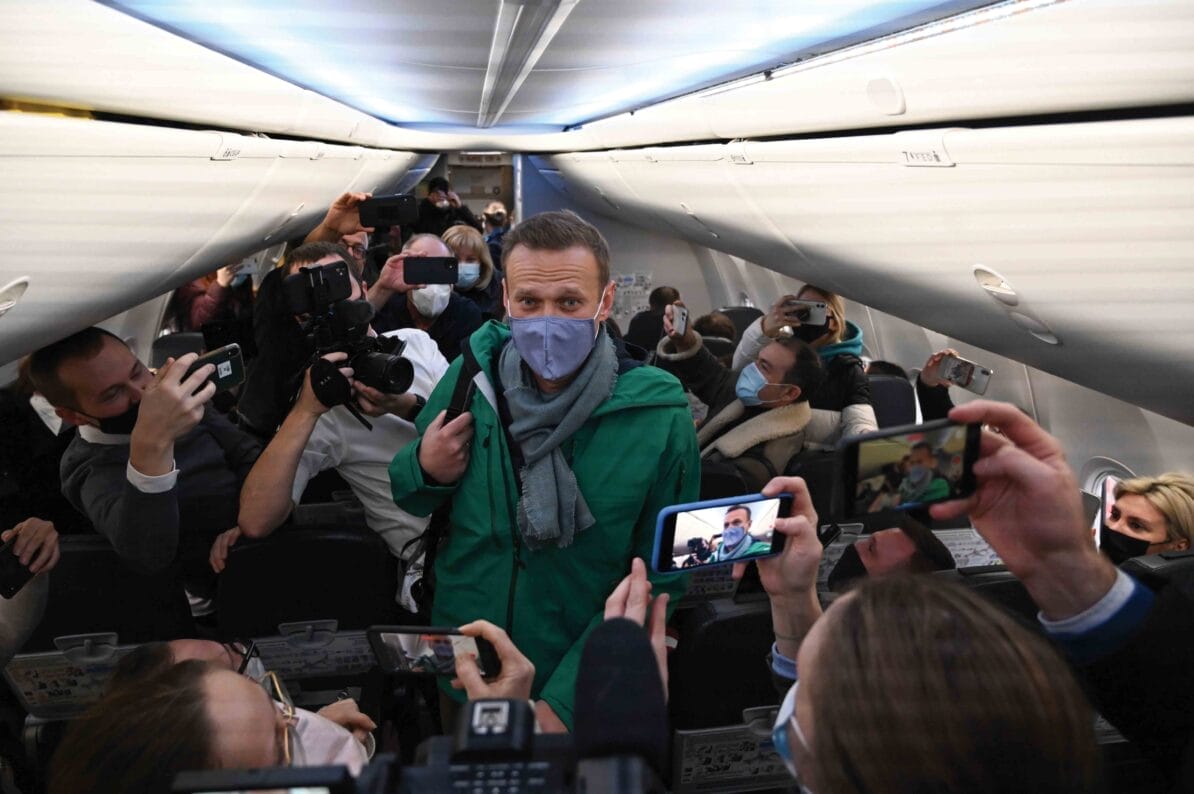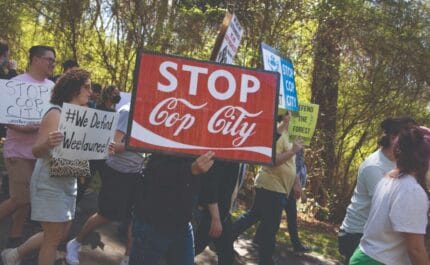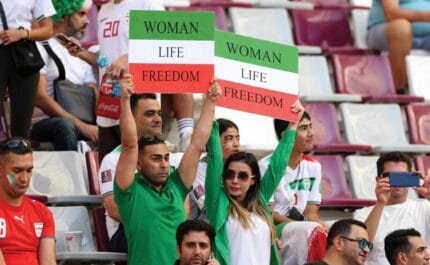Moment that mattered: Alexei Navalny is arrested upon his return to Russia
In issue 42 of Delayed Gratification we spoke to Russian anti-corruption activist Vladimir Ashurkov about Navalny's return to Moscow

Alexei Navalny on a flight from Berlin to Moscow on 17th January 2021. Photo: Kirill Kudryavtsev/AFP via Getty Images
17th January 2021 (Taken from: #42)
Vladimir Ashurkov last spoke to Alexei Navalny a week before the Russian opposition activist returned to his home country. Just five months earlier in August 2020 Navalny had been poisoned in what appeared to be a state-sponsored assassination attempt, but he refused to live in exile. “There really wasn’t a question in his mind of whether to return,” says Ashurkov. “But he understood that there was a high probability of his arrest and further persecution.”
The life of Navalny, who in recent years has become the most prominent political threat to Russian president Vladimir Putin, had been left in the balance after he fell ill on a flight from Tomsk to Moscow on 20th August 2020. The plane made an emergency landing in Omsk, where Navalny fell into a coma. After huge international pressure, he was flown to Germany. There it was discovered he had been poisoned by a substance similar to Novichok, the nerve agent used in the attempted assassination of Sergei and Yulia Skripal in Salisbury in 2018. Navalny recovered and started making his plans to go home. Ashurkov wasn’t surprised.
“His life’s work is in Russia,” he says. “[He has] millions of supporters, the political organisation that he created. He hasn’t done anything wrong.” Navalny was arrested as soon as his plane landed at Moscow’s Sheremetyevo airport, on the Kafkaesque charge that he violated the terms of his parole from a previous politically motivated conviction by leaving the country to receive treatment. “He is probably now the most prominent political prisoner globally,” says Ashurkov.
In 2009 Ashurkov was a Moscow banker who had an epiphany after reading the blog of Navalny, then a little-known anti-corruption campaigner and trained lawyer. “I wasn’t a member of any political party or supporting any cause, but I disliked the direction Putin was taking Russia in, oppressing and limiting civil and political freedoms, with rampant corruption,” says Ashurkov. He felt that his own knowledge of the corporate world might help Navalny so in 2010 he sent him an email offering his services. “[Navalny] wasn’t just talking about corruption, he was trying to do something about it,” he says. Navalny was not seen as a serious threat to the established order until 2011, when he led the large street protests that broke out across Russia after flawed parliamentary elections and in the run-up to the 2012 presidential vote. Navalny had been angered by the alleged electoral fraud of Putin’s United Russia party, which he had famously called the “party of crooks and thieves”. The same year Navalny and Ashurkov set up the Anti-Corruption Foundation to expose what they saw as the looting of Russian state assets and wealth by Putin and a network of oligarchs and security officials.
In 2013 Navalny ran for mayor of Moscow, with Ashurkov arranging the fundraising and financing. Navalny came second with close to 30 percent of the vote, despite most TV channels and newspapers supporting the Putin-backed incumbent Sergey Sobyanin. Shortly afterwards, Ashurkov’s apartment was raided and he fled Russia, claiming political asylum in the UK, where he continued to help run the Anti-Corruption Foundation alongside setting up Kleptocracy Tours, coach trips in London that stopped at the lavish properties owned by the oligarchs and government officials who help to keep Putin in power.
Navalny stayed in Russia and grew his profile by producing a series of investigations which highlighted some of the most egregious examples of corruption emanating from Russia’s elite to his six million YouTube subscribers. He also set up a political party, Russia of the Future, but was barred from standing in the 2018 presidential election.
Despite the killing of high-profile political figures, including former deputy prime minister and vocal Putin critic Boris Nemtsov in 2015, Navalny continued to speak out, even after he almost lost an eye when he was attacked in Moscow in 2017. Then came that fateful flight of 20th August 2020. “I spoke with his wife the evening after he was poisoned,” recalls Ashurkov. “It’s not the end until it’s the end… [but] nobody knew whether his abilities would come back.”
The doctors treating him in Omsk initially declared he was too sick to be moved, but Navalny was eventually transported to Germany where he was kept in a medically-induced coma. It wasn’t until 7th September 2020 that doctors felt he could be revived. His supporters held their collective breath. “I remember the first Zoom call after the poisoning, he was telling me how the doctors are making him throw a ball at the wall and catch it and he wasn’t always very good at that!” recalls Ashurkov of the relief he felt when he realised his friend was going to be okay.
Navalny immediately got back to work. With the help of investigative journalism website Bellingcat he began looking into his own poisoning and discovered that he had been trailed by a team of assassins from Russia’s Federal Security Service, the FSB, since 2017. Using open-source intelligence, including travel and telecoms records, Bellingcat investigators pieced together the names and movements of the team, who were all chemical and disposal experts. The coup de grâce was delivered by Navalny himself when he phoned one of his would-be assassins, pretending to be a superior officer asking to be debriefed on what went wrong with the operation. The FSB agent admitted that he’d smeared a nerve agent on Navalny’s underwear but bemoaned the fact it worked too slowly and that the doctors in Omsk likely saved his life by administering an antidote. “It is like a biblical story,” says Ashurkov. “Someone faces an assassination attempt, miraculously survives and then uncovers the identity of his own would-be killers.”
The Russian state denied it had tried to kill Navalny, claiming that the Bellingcat investigation was a “provocation” by the foreign intelligence of a rival government. It said there was no evidence of poisoning and so no official investigation was opened. There were, however, sufficient grounds to arrest Navalny when he returned to Russia on 17th January. Two days after Navalny’s arrest, the Anti-Corruption Foundation released a two-hour video on YouTube called ‘Putin’s Palace’. It claims that a huge £1 billion Black Sea palace featuring a casino, ice rink, pole dancing lounge and $800 toilet brushes was built for Putin using a vast, corrupt kickback scheme.
Navalny was sentenced to two years and eight months in jail for violating his parole and was sent to one of Russia’s most notorious prisons. “Alexei is in the crosshairs in two aspects,” says Ashurkov. “One is that he is a political prisoner and an enemy of Mr Putin. The second is that he is in the Russian prison system, and the conditions in them are appalling. I think his treatment and the denial of medical care amounts to torture”.
Thousands of people were brutally arrested in the countrywide protests that followed and leaders across the world have called for Navalny to be released. At the June 2021 summit between Joe Biden and Putin, the US president warned that Navalny’s death would trigger a response that would be “devastating for Russia.” But as Navalny sits in jail his organisation is being dismantled. On 6th June 2021 a Russian court declared that his political network was “extremist”. The ruling means that Navalny and his allies are barred from running for office, and gives the police powers to arrest activists and freeze bank accounts. Ashurkov’s Anti-Corruption Foundation was also liquidated by a Moscow court.
Ashurkov doesn’t regret the path he and Navalny have taken. “If one’s actions are dictated by rationality, you probably wouldn’t want to confront the Russian regime,” he says. “It’s the feeling of injustice and fairness that drives people who oppose Putin. The most vivid example being Navalny.” Navalny’s return has been applauded by many as an act of bravery that one day might be seen as the beginning of the end of the Putin era. “It’s not the fact that he’s returned to Russia that makes me optimistic. His return and incarceration per se are not the cause of optimism,” says Ashurkov. “The fact that human will of this magnitude exists? That’s what gives me optimism.”
Slow Journalism in your inbox, plus infographics, offers and more: sign up for the free DG newsletter. Sign me up
Thanks for signing up.








